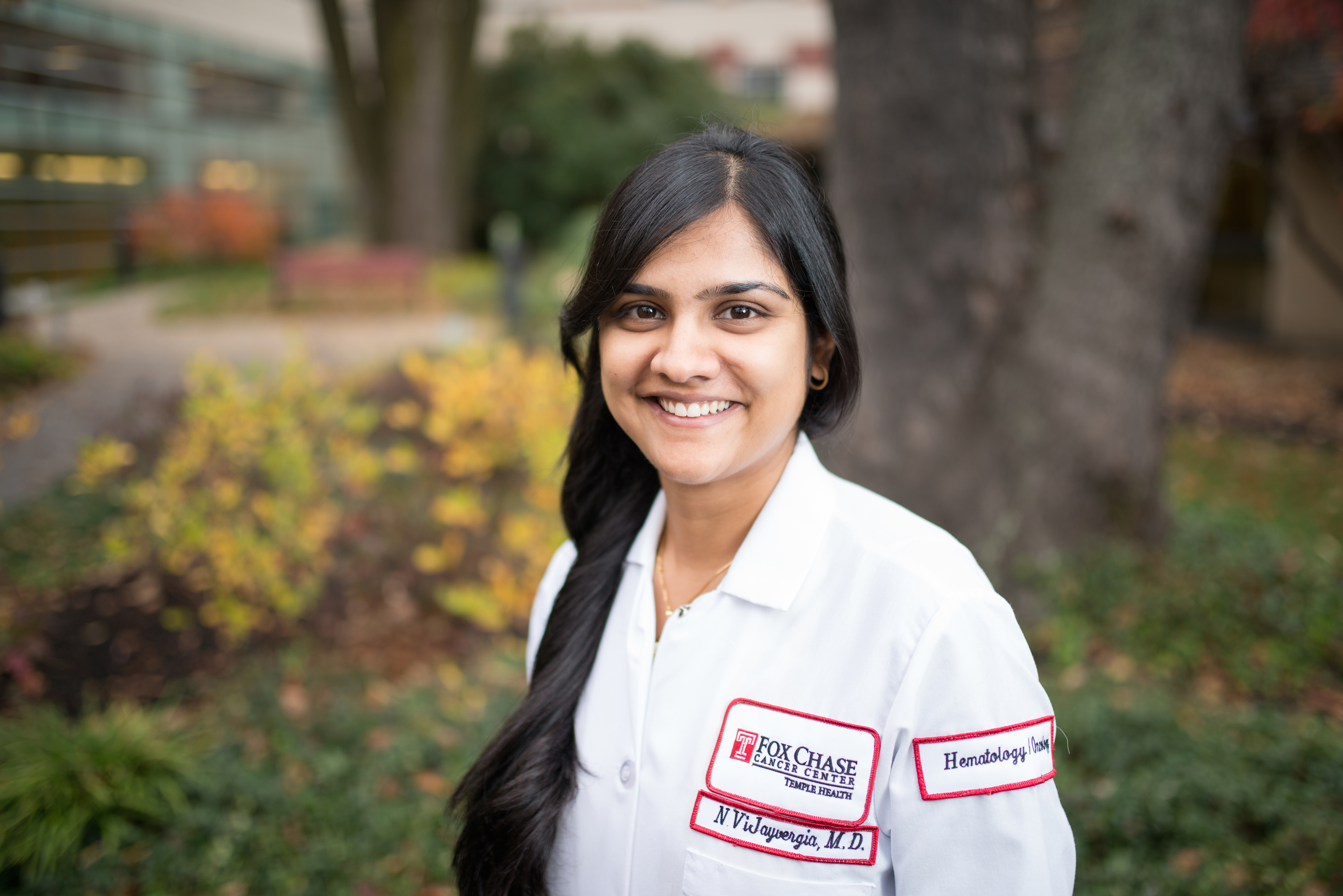
Marital status significantly impacts survival rates for patients with colorectal cancer, according to a new study co-authored by a Fox Chase Cancer Center researcher that was presented at the American Society of Clinical Oncology’s (ASCO) Annual Meeting. Married individuals were found to have better survival rates than single or separated and divorced or widowed individuals.
“Research has shown that people who are by themselves face a double burden: They are typically diagnosed at later stages and experience worse treatment outcomes,” said Namrata Vijayvergia, MD, Section Chief of Gastrointestinal Medical Oncology at Fox Chase and senior author on the study. “Our findings indicate that the pattern has persisted over time, which suggests the need for more targeted outreach and screening approaches for unmarried individuals.”
Lisa Liu, MD, who presented the results of the study, worked on it under the mentorship of Vijayvergia, who she met while attending medical school at the Lewis Katz School of Medicine at Temple University. Liu is now an internal medicine resident at George Washington University.
The research team analyzed data on colorectal cancer cases diagnosed between 2000 and 2021 gleaned from the National Cancer Institute’s Surveillance, Epidemiology, and End Results database. They stratified patients by marital status into three groups — married, single, and separated/divorced/widowed (SDW) — and also compared data across two time periods, 2000-2010 and 2011-2021.
The researchers found that overall survival improved across all marital groups between the 2000-2010 and 2011-2021 time periods, likely due to advances in cancer treatments and improved screening. However, the disparity between married and unmarried individuals persisted. In both periods, results showed that married individuals had the highest five-year overall survival rate (61.2% and 63.1%, respectively), followed by single individuals (51.1%, 54.5%) and then SDW individuals (43.8%, 45.7%).
“We see in clinical practice that patients with partners demonstrate higher treatment compliance, have better appointment attendance, and are more likely to report side effects promptly, all factors that influence outcomes,” said Vijayvergia.
The data also showed that married individuals were more commonly diagnosed with localized, earlier stage cancer compared to the two other groups. Combined with their higher survival rates, this finding suggests that earlier detection may be key to better colorectal cancer outcomes.
“These results suggest we may need to challenge the status quo in our screening approaches,” Vijayvergia said. “Developing specialized screening efforts and targeted outreach programs for single populations could help close this gap.”
The study, “Effects of Marital Status on Survival in Patients With Colorectal Cancer,” was presented at the 2025 ASCO Annual Meeting, which is being held May 30-June 3 in Chicago.